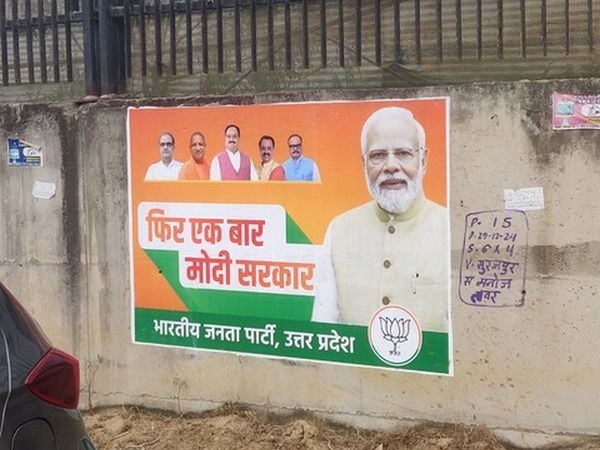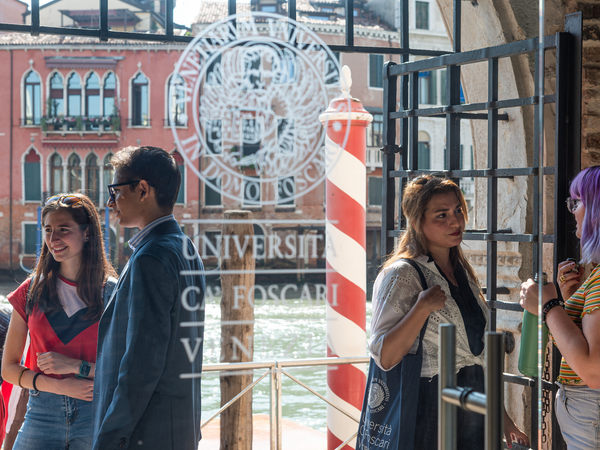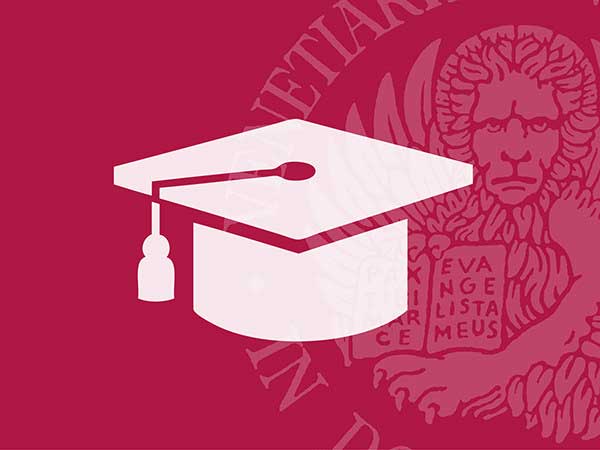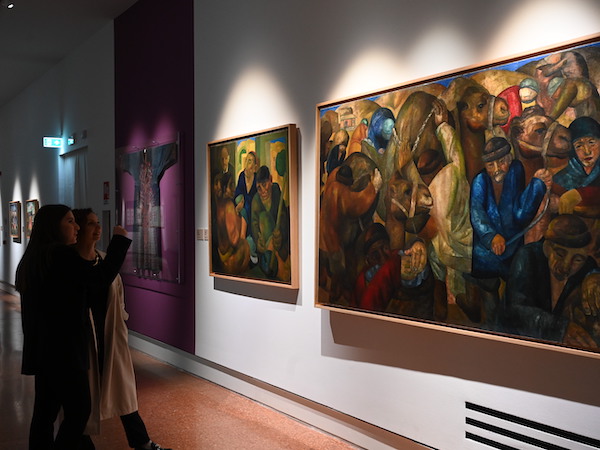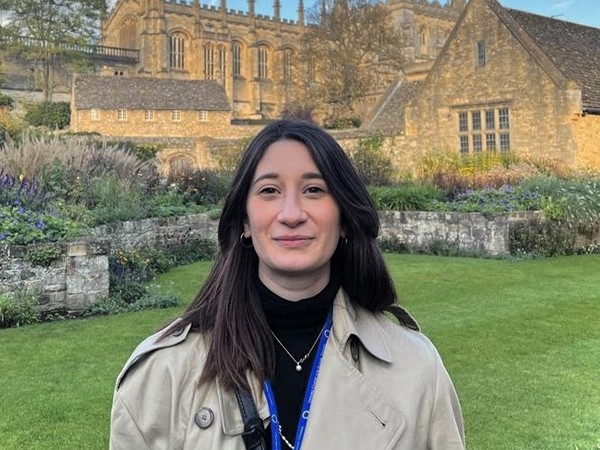What are the impacts of climate change on ecosystems, biodiversity, and human communities at a regional and global level? To what extent are the natural world and human societies vulnerable to the consequences of climate change, and to what extent can they adapt to them?
These are some of the questions addressed by the Sixth Assessment Report of the Intergovernmental Panel on Climate Change (IPCC), the United Nations body for assessing the science related to climate change. This report, which was published on 28 February 2022, recognises the interdependence of climate, ecosystems and biodiversity, and human societies.
The 2022 report features the contribution of Dr Animesh Gain, who became a Marie Curie Research Fellow in 2019 and has since conducted his research at the Massachusetts Institute of Technology (MIT) and at Ca’ Foscari University of Venice. Dr Gain currently teaches Innovation and Environmental Management on the MA in Environmental Sciences at Ca’ Foscari. He has served as a contributing author to one of the 18 chapters of Climate Change 2022: Impacts, Adaptation and Vulnerability.
Dr Gain is an internationally recognised scholar who has specialised in the field of environmental sustainability with particular focus on human-nature interactions, sustainable development goals, climate change adaptation, environmental governance and diplomacy, water resources management,and coastal/delta management. His academic career started with scientific studies and then shifted its focus to policy making. Dr Gain is originally from Bangladesh, where he obtained a BSc in Environmental Science and an MSc in Water Resources. In 2013 he obtained a PhD in Science and Management of Climate Change at Ca’ Foscari, in collaboration with Utrecht University in the Netherlands and the United Nations University in Germany. After his PhD studies, Dr Gain conducted his research in Germany for five years thanks to multiple funding opportunities before becoming a Marie Curie Global Fellow in 2019. As a Marie Curie Global Fellow he has conducted research at the Massachusetts Institute of Technology (MIT), USA and at Ca’ Foscari, looking at the complexities of transboundary water conflicts through water diplomacy and a mutual gain negotiation approach.
We have asked Dr Gain to tell us about his contribution to the chapter on Water and about his research.
“My research focuses broadly on the interdisciplinary aspect of water resources management, merging both physical science and social science perspectives. I started with my focus on hydrology and water science and then I slowly incorporated management and policy dimensions. My current research is on transboundary water resources management. I am looking at what the sources of water conflicts are and how we can resolve them.”
Why do you propose a perspective that incorporates physical science and social science?
In my view, if we want to understand science, we must also understand the complexities of the physical and human dimensions, in order to integrate them into our knowledge. In other words, I believe that scientists should incorporate ‘the human dimension’.
Consider, for example, this problem: the quality of water in the basin of the Ganges river is poor. What aspects do we need to consider in order to improve the situation? The Ganges is one of the holiest rivers in Indian culture. People celebrate festivals and in many ways pollute the river — yet, we need to respect religious views, and at the same time monitor the quality of water in physical terms. If we fail to merge these perspectives and promote negotiation between them, we will fail our task.
The article you contributed to focuses on Global Water Security in Climate Change and Climate Resilient Development. Can you explain what this is about?
My contribution to the IPCC’s 6th Assessment Report involves chapter 4, “Water”. I was invited to contribute to the writing on water security assessment at global scale because of an article I published in 2016 together with Carlo Giupponi from Ca’ Foscari and Yoshihide Wada from Utrecht University (‘Measuring global water security towards sustainable development goals’, in Environmental Research Letters, vol. 11). In this study we proposed a global water security index (GWSI), which is based on 'availability', 'accessibility to services', 'safety and quality', and 'management' — for example, available water might not be accessible to the community because of water quality deterioration and governance problems. We also devised maps that show the areas of the world in which integrated strategies are needed to achieve water-related targets, in particular in Africa and Asia.
Based on our assessment, we found the following factors that lead to insecurity of water resources: the unequal global distribution of freshwater, temporal variability, water quality deterioration, flood risks, economic affordability and social accessibility, lack of good governance.
In what ways is water security affected by climate change?
Climate change and socio-economic development play crucial roles in water resource management. So even though the global amount of water can meet global demands, we need to consider demand management — given that the physical availability of water is limited — as well as negotiation and water diplomacy. We need to be concerned about climate change. Climate change exacerbates problems such as water availability, which in turn can undermine water security. For example, seasonal variability is increasing.
This is why we should not only focus on the implementation of structural measures, but also consider management that can help improve water governance. This can be done by engaging stakeholders, which vary from context to context — for example, when there is a local water conflict, there are potential “winners” and “losers”, and the needs and perspectives of all these stakeholders must be taken into account in the decision-making process. Let us consider the role that women play in water use in developing countries. In certain developing countries, women are often excluded from decision-making processes — yet they play a crucial role in the way water is used, for example in domestic contexts. From this point of view, promoting equality and inclusion in certain contexts can be very difficult because of social and cultural norms. However, things are changing and technology is helping societies progress more quickly than in the past. Consider the community I come from, in Bangladesh: women’s education there is improving and women are beginning to take more active roles in decision-making processes.
Can you give us some examples of places and communities affected by issues with water security?
We have found issues with water security mainly in African, Middle-Eastern and Asian countries. In some of these places, water security is a major issue, not only because of water scarcity, but also because of water quality, flood risks, and governance issues. All of these dimensions affect the accessibility of water in the community. For example, now there are about 1 billion people worldwide who do not have access to safe water, while 1.7 billion people do not have access to safe sanitation. There are many reasons for this — governance issues involving lack of infrastructure and inadequate decision-making, failure to incorporate stakeholders, and conflicts between upstream and downstream communities.
What action can be taken to attempt to solve water-related conflicts on an industrial scale and among communities?
Resolving conflicts is challenging, but water diplomacy is the only way forward. Negotiation and diplomacy are the most effective tools to improve the situation. I use the word ‘diplomacy’ as a broad term, to refer to a negotiation approach that can resolve conflicts.
The problem is that some countries consider their own security above everything else, and therefore hamper the security of other countries — and not only when it comes to water resources. We should remember that we all have common interests. This is where integrated water resources management becomes particularly useful.
On an industrial scale, the main issue is water quality, which is related to the management of wastewater. Adopting structural measures for wastewater treatment can be useful and helpful, but we always need to engage stakeholders — such as the industrial community — and ensure we understand their perspectives, if we wish to find sustainable and long-lasting solutions.
At a community level, negotiation still plays a vital role in involving and engaging communities and their perspectives to incorporate science. Scientific inventions can indeed be innovative, but science alone is not enough — sometimes communities do not accept scientific information or discoveries because these do not fit in with community needs and societal norms. This is why if we are to understand people’s views and to communicate science in ways that can be understood and accepted, we need negotiation and mediation.
Are you planning to conduct research on the Venetian lagoon?
Absolutely — I am already working on a project that examines the MOSE flood barrier and considers how it can be managed effectively, in order to reduce the impact of flooding on the city, taking into account other stakeholders, such as port authorities and the ecosystem. Our question is, how can we better manage the Venetian lagoon with flood barriers?






